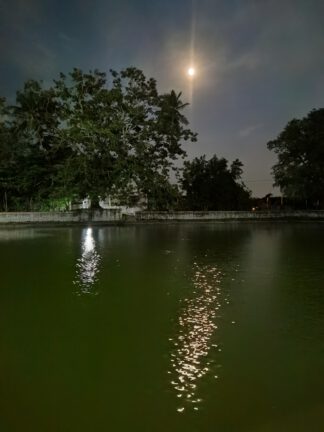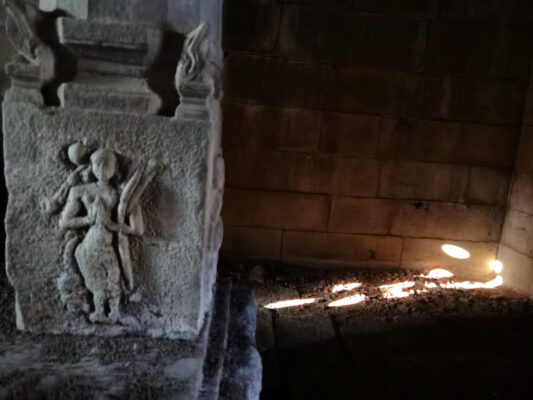Et is full moon in India. Time for self-reflection, meditation and inner reflection. I have never really thought about death. It has always been a boundary for me, the thing that defines our existence in a negative way. Finitude throws us back on ourselves, or so I thought. I somewhat agreed with Heidegger here. Thinking something beyond death always seemed arbitrary, naive, romantic, escapist and gullible to me... Only in existential reflection did it seem meaningful to me. The dead were therefore simply dead, the idea that they somehow continued to exist after death or had already existed before birth seemed to me to be an important question, the answer to which, however, was nonsensical, since this boundary is defined as absolute. I could easily dismiss those who reported that they had crossed it and returned as esoteric. That was not difficult for me and it seemed right.
In meditation, however, things look quite different. In meditation, consciousness clears itself, it detaches itself from the outside world and the body by bringing everything into consciousness. The senses become sensory impressions, the outside world becomes pure being, consciousness becomes consciousness in itself, it recognizes that it is not a reaction to the world, but its origin. It is its origin because it is identical with consciousness itself, the consciousness that is everything. There is no partial consciousness, there is only consciousness that lives in ignorance. When it steps out of this ignorance, Atman recognizes itself as Brahman, which is itself one with the consciousness that created the universe. It cannot be otherwise. How could a few kilos of matter give rise to a small part of consciousness that is unconnected with other consciousness that is not embedded in a larger consciousness? How could these few kilos of matter, when they disintegrate, bury consciousness with them? What kind of strange idea is that? A few kilos of brain in a biological body would produce consciousness just like that, in subjective form, imperfect and isolated, incapable of merging with other consciousness, only to disappear into nothingness?
Instead, the question is now posed to me in a completely different way. If my consciousness is the ground of all existence and always already contains everything in itself, then the path of individual life is a way of experiencing precisely this. Realizing this is perhaps the core of enlightenment. But what does this mean in relation to other lives? Those with whom I share the now, but also those who were before my time, those who left during my life, and those who will come when my time here is over? There is no beginning or end of a consciousness in the true sense, even though that consciousness is bound to lives in this existence.
Consciousness exists detached from life, even from life in a rich sense, that life which does not mean the mere biological form of life, but life as a path of consciousness in a biological body: Life energy (Élan vital, Prana), the world of feelings and the heart, the level of thinking that is directed towards the world (Manas), and the thinking that reflects, analyzes and understands it (Buddhi), as well as the thinking that contemplates the world and classifies it in the larger context (Vijnana), and that experience that connects us with the higher consciousness (Satchitananda, those three levels that largely elude language and manifest only in experience). That life which extends even further into the worlds of yoga, the body, the arts, architecture, real life - I can explore and illuminate that. But what about the lives of others and those who are not in my time?
They are real, they have always existed and do not cease to exist. They merely leave this world of self-awareness, they absorb the experiences they have gathered, and when they leave this world, they go to the moon, say the Upanishads. There they can enjoy the wealth of good deeds before they are reborn, that is, before they enter the world of experience again. That intermediate state in the moon, deep sleep, which is only superficially similar to sleep at night, is a connection with the gods, say the Upanishads. It is ultimately the connection with Brahman, and that connection is deeper than being identical with Brahman, which now sounds a little contradictory only to the rational mind.








